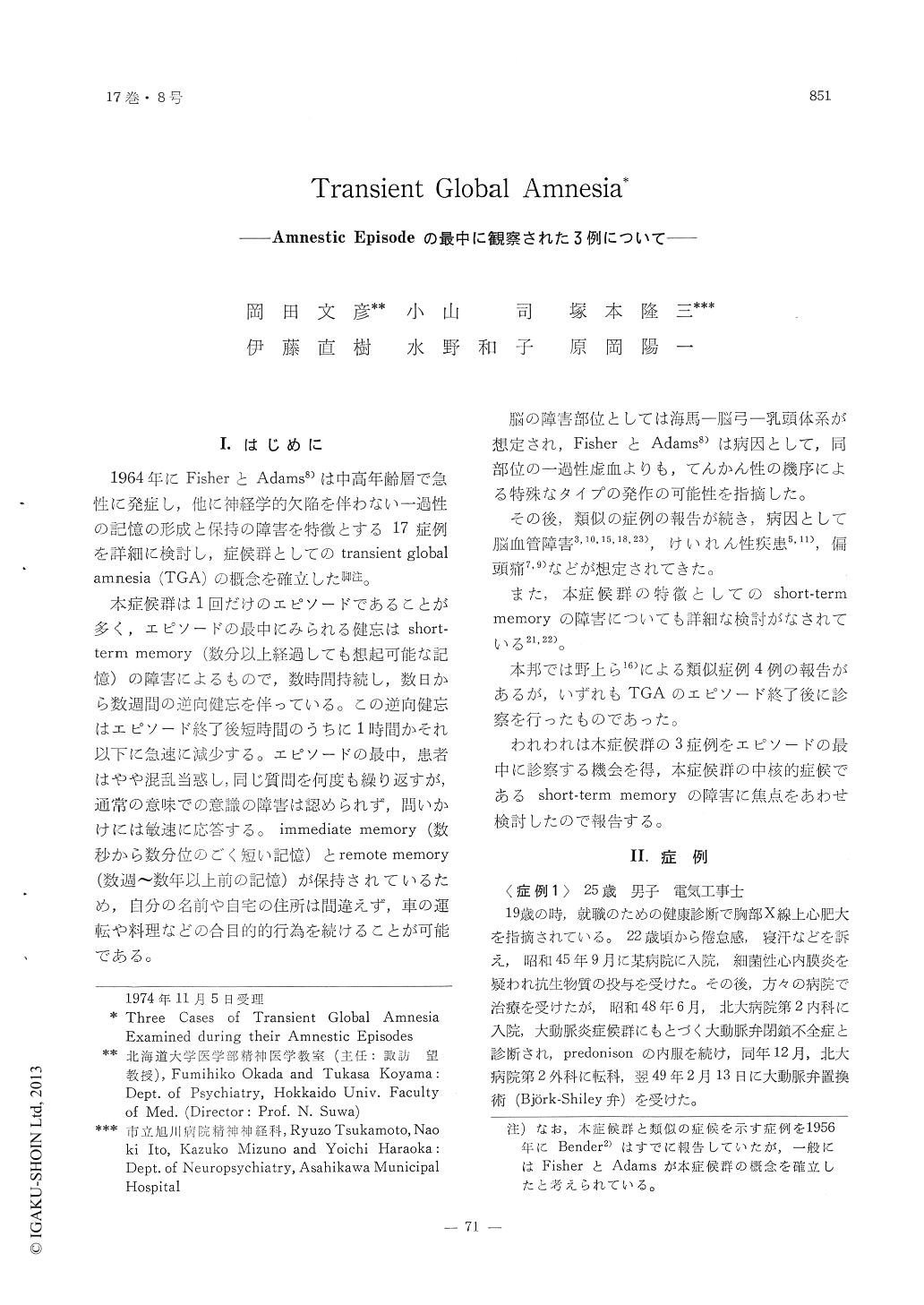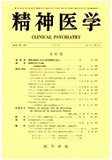Japanese
English
- 有料閲覧
- Abstract 文献概要
- 1ページ目 Look Inside
I.はじめに
1964年にFisherとAdams8)は中高年齢層で急性に発症し,他に神経学的欠陥を伴わない一過性の記憶の形成と保持の障害を特徴とする17症例を詳細に検討し,症候群としてのtransient global amnesia(TGA)の概念を確立した脚注。
本症候群は1回だけのエピソードであることが多く,エピソードの最中にみられる健忘はshort-term memory(数分以上経過しても想起可能な記憶)の障害によるもので,数時間持続し,数日から数週間の逆向健忘を伴っている。この逆向健忘はエピソード終了後短時間のうちに1時間かそれ以下に急速に減少する。エピソードの最中,患者はやや混乱当惑し,同じ質問を何度も繰り返すが,通常の意味での意識の障害は認められず,問いかけには敏速に応答する。immediate memory(数秒から数分位のごく短い記憶)とremote memory(数週〜数年以上前の記憶)が保持されているため,自分の名前や自宅の住所は間違えず,車の運転や料理などの合目的的行為を続けることが可能である。
Three cases of transient global amnesia (TGA) have been observed during their amnestic episodes. Case 1 was a 25-year-old man, whose amnestic episode occurred one month after aortic valve replacement for aortitis syndrome. Case 2 was a 54-year-old man with Wolff-Parkinson-White syndrome and hypertension for 12 years. Case 3 was a 72-year-old man, who had been under the care of a physician for hypertension, arteriosclerosis and right bundle branch block from two years ago.
All these patients had an acute onset of profound global recent memory defect with sparing of immediate recall and relative sparing of remote memory except for a variable degree of retrograde amnesia. Neurological examination disclosed no other central nervous system dysfunction at any time during the amnestic episode. The results of usual laboratory tests, including EEG and cerebrospinal fluid examination were normal.
Complete recovery occurred except for persistent amnesia for events occurring during the episode. In case 2 there seemed to be some degree of recovery of amnesia for events at the onset of episode.
Transient cerebral ishemia due to cerebral arteriosclerosis might be a most likely cause of TGA in case 2 and case 3. In case 1 arterial embolism was favored as a cause of TGA.

Copyright © 1975, Igaku-Shoin Ltd. All rights reserved.


